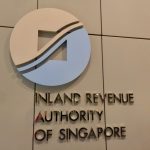The Inland Revenue Authority of Singapore (IRAS) has launched interactive Property Tax Bills (“i-Bills”) this 2020 Property Tax season to offer taxpayers greater convenience and personalisation on an interactive mobile platform. Over 700,000 residential property owners have benefited from this initiative, which was rolled out in December 2019.
 Upon receiving an SMS, property owners can click on a unique IRAS-domain link and enter last four digits of their ID reference to access the i-Bill, through which they can view and pay their bills seamlessly.
Upon receiving an SMS, property owners can click on a unique IRAS-domain link and enter last four digits of their ID reference to access the i-Bill, through which they can view and pay their bills seamlessly.
Besides displaying 2020 property tax information in a visual, reader-friendly way, the i-Bill allows property owners to apply for GIRO and offers direct payment navigation to Internet Banking and the AXS mobile app.
Table of Contents
Payment through the AXS mobile app is seamless as the tax reference number and amount payable are auto-populated without the need for data entry. This facilitates electronic payment on-the-go.
In the development of the i-Bill, IRAS gathered feedback from property owners and conducted online user testing from May to July 2019. Based on responses from 1,200 participants, valuable feedback such as ease of navigation and information layout were incorporated.
Recognising the i-Bill’s intuitive and easy-to-use functionalities, property owners who have received the i-Bill have indicated their support for the initiative. “Property Tax payment is now simple and straightforward. I really like the interactivity and clear communication and I especially feel at ease knowing that payment has been received,” said Mr Tang Choong Ling, 58, owner of a private residential property.
The i-Bill is the latest of a series of digital solutions aimed at promoting taxpayer-centricity and simplicity. IRAS previously introduced the Ask Jamie virtual assistant and Live Chat facility on its website, and experienced an increasing number of taxpayers preferring digital modes instead of calling or visiting IRAS.
“IRAS has been leveraging the use of data, connectivity and digitalisation in redefining the taxpaying experience as part of its transformation journey. The Property Tax i-Bill is one such example so that taxpayers can enjoy seamless services with a personal touch,” said Mr Ng Wai Choong, Commissioner of Inland Revenue/Chief Executive Officer.
2020 Property Tax payment due by 31 Jan 2020
Payment for 2020 Property Tax is due on 31 Jan 2020. IRAS encourages property owners to apply for GIRO to enjoy up to 12 interest-free monthly instalments or opt for a one-time deduction. Taxpayers who have bank accounts with DBS/POSB, UOB or OCBC can apply for GIRO via Internet Banking and receive instant approval.
A 5% penalty will be imposed on property owners who fail to pay or have not approached IRAS to discuss alternative payment plans for 2020 Property Tax by 31 Jan 2020.
In Singapore, property tax is a form of wealth tax. If you are in ownership of any property, you will be required to pay property tax. Even if you have rented out your property, you will still be obligated to pay your property tax. (P.S. If you are renting out your property, you will need to pay both property tax and income tax due to your rental income).
Since more than 90% of Singaporeans own a property, it is likely that you are one of them who needs to pay your property tax when it’s due.
Property tax is to help you. The richer you are, supposedly you will need to pay higher taxes, this is likely because more resources are being deployed for such properties, such as police patrol and other costs? Building parks and shelters also cost money, so if this enhances your rental, then I am sure Singapore’s Inland Revenue Authority of Singapore (IRAS) wants a share of it.
When Is The Time To Pay My Property Tax?
You can make payment for your property tax anytime throughout the year. The only condition is that you need to pay it before 31st January every year. IRAS will send you reminders to pay your property tax, so we think it is hard for you to miss it. But what happens if you really miss the property tax payment?
If you missed the deadline to pay your property tax, a 5% penalty will be imposed on the unpaid property tax. If you are thinking of ignoring IRAS and act blur about your late property tax, here’s something you should know: The government has the power to get the tax from wherever it can. It can even access your bank account or your payroll. So, you can forget about trying to skip paying on your property tax.
Property Tax Singapore – How does Annual Value affect the calculation?
Annual value is a very misleading term that seems to suggest it is the value of your property on an annualised basis. However, it isn’t that. The way IRAS estimates your property’s annual value is by taking an estimate of how much rental income your property can fetch in the year. In other words, IRAS is taking your property’s rental potential as an estimate of its annual value.
Firstly, IRAS will compare your property with similar or comparable properties to find suitable comparisons. Then, IRAS will take the monthly market rent of those units as an estimate of your property’s rental income. Finally, the annual value of your property is calculated by multiplying your property’s monthly market rent by 12. If you are renting out your property, IRAS will simply take your monthly rent and multiply it by 12 after deducting reasonable expenses for furniture and maintenance fees.
Finding Out Your Property’s Annual Value
There are two ways in which you can find out about your property’s annual value.
The first, and the easier way, is to log on to IRAS My-Tax-Portal. Through the portal, you can check up on the annual value of your property at any time. While the annual value can change within a year, it is hardly significant. Checking it once every 3 months should keep you up to date with your property’s annual value.
The other way is to do your own comparison. IRAS takes factors such as location, size, conditions and other physical attributes of the property in finding a reasonable comparison to your property to calculate the monthly market rent. By using the same factors, you can find similar properties and make a reasonable estimate of your property’s annual value.






